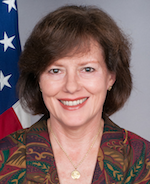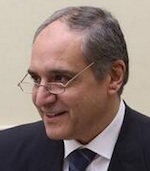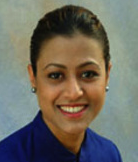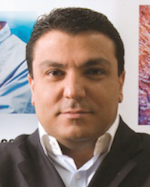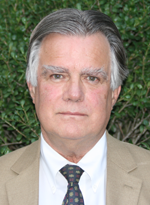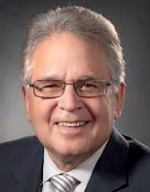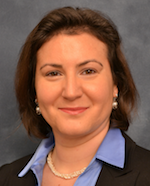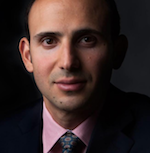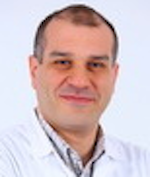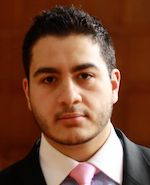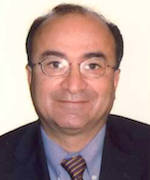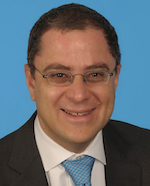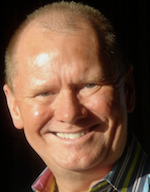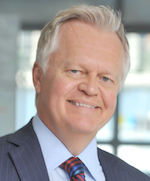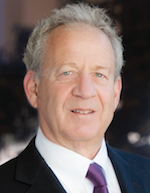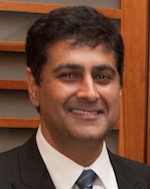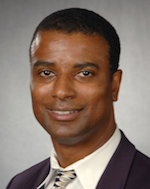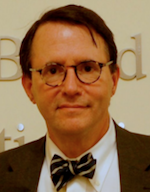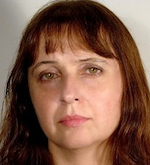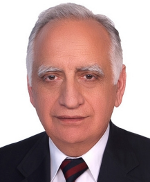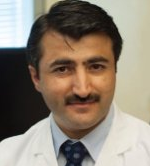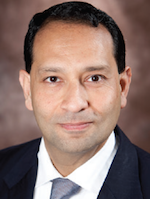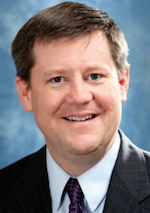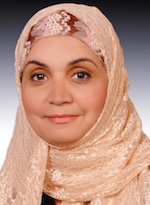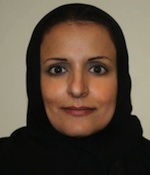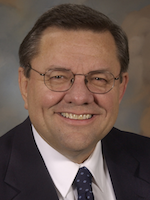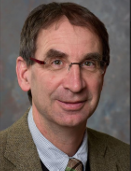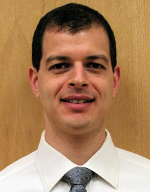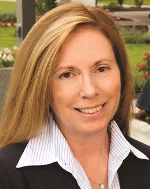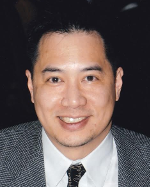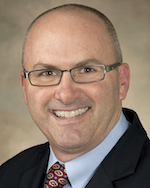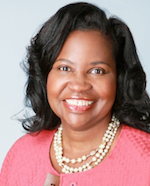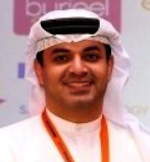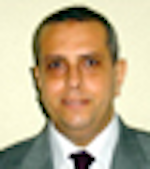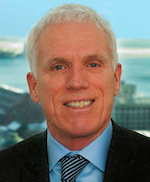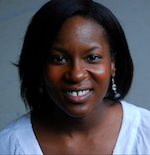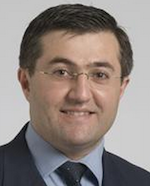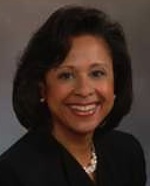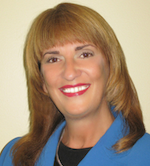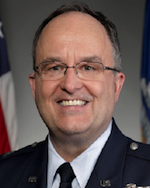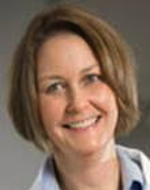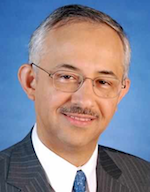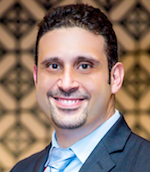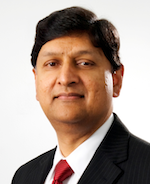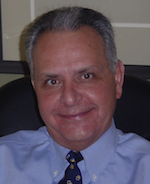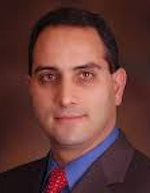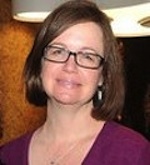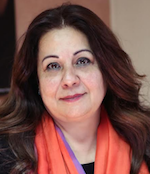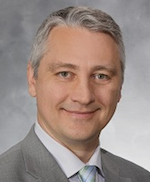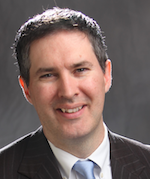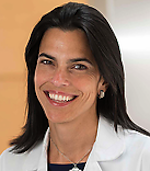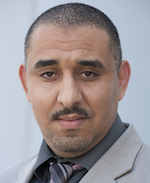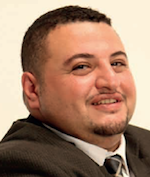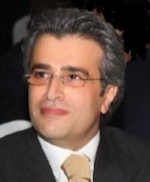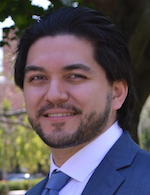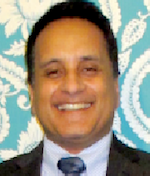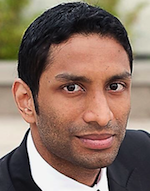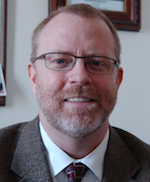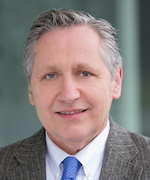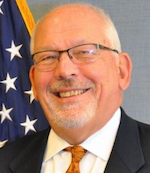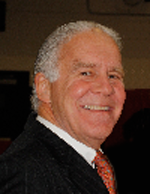|
7:00 am - 8:00 am
Room: Main Lounge, First Floor
Continental Breakfast Sponsored by SYNENSIS

|
|
C3 2015 US-Arab Healthcare Summit Registration & Continental Breakfast
|
The Union League Club
38 East 37th Street / S.E. Corner of Park & 37th/ Entrance on 37th Street
New York, NY
The 2015 C3 US-Arab Healthcare Summit is an exclusive event dedicated to forging new business relationships, fostering existing partnerships and exchanging best practices by building a cohesive global community through bilateral cooperation.
Reinforcing the theme of the 2015 C3 US-Arab Healthcare Summit entitled "Creating Solutions To Today's Healthcare Challenges: Making Good Health Contagious," the focus of the Summit will discuss the most up-to-date information on important healthcare topics including panels addressing a cure for Hepatitis C; patient safety; the rise and cost of treating mental health issues; the impact of exoskeletons on spinal injuries; medical tourism and cooperative assistance for knowledge transfer via teaching hospitals.
The 2015 C3 US-Arab Healthcare Summit believes that the fight against disease is not a fight for glory. It is about resources and research, about equality and social justice, in order to provide survival and security. It is a fight for a better and healthier life for all of us, but mostly for our children who will continue to live in this very interconnected world.
|
|
|
8:00 am - 9:00 am
Room: Lincoln Hall, Second Floor


|
|
Opening Plenary: Creating Critical Changes In the Course of Today's Healthcare Challenges!
|
|
Dr. Samira Asma,
(Moderator),
Chief of the Global NCD Unit,
Center for Global Health,
U.S. Centers for Disease Control and Prevention
|
Ms. Elizabeth Richard,
Deputy Assistant Secretary of State,
U.S. Department of State
|
Dr. Brian J. Nickerson,
Administrative Director,
Icahn School of Medicine,
Mount Sinai
|
Dr. Daniel Zoughbie,
CEO & Chairman,
Microclinic International
|
Dr. George Cheriyan,
CEO/Chief Medical Officer,
American Mission Hospital,
Bahrain
|
Dr. Rabi Hanna,
Director,
Pediatric of Blood and Marrow Transplantation,
Department of Pediatric Hematology and Oncology,
Cleveland Clinic
|
|
Today's healthcare faces discontinuous, disruptive change. That said, the culture of today's healthcare is one of a clash among competing forces. Stakeholders often work against each other to obtain advantage for themselves at the expense of others. If healthcare is to achieve meaningful improvement/changes, this competitive clash needs to be transformed into a competition to work together to achieve the right results for the patient. For instance, the way health professionals make decisions will not scale up to handle the data load that is resulting from biological discoveries in genomics, proteomics, and other areas. As the health professions and other stakeholders realize that they cannot escape disruptive change and subsequent challenges, we will have a once-in-a-century chance to test better approaches to today's healthcare challenges in which patient care will be best delivered through systems approaches. Meaning, healthcare providers are taught to practice in multidisciplinary, high-performance teams, using simulation to perfect their skills and outcomes. In the process of shifting toward this vision or other possible futures, health professionals must strive to preserve the passion in quality care for the patient. But, at the same time, critical changes must be made to roles, education, decision-making processes, payment structures, and the way healthcare/patient success is measured—in short, to the professional and business models of every stakeholder in the system.
|
|
|
9:00 am – 9:10 am
|
Session Break
|
|
9:10 am - 10:10 am
Track #1
Room: Lincoln Hall, Second Floor

|
The Importance of Teaching Hospitals as Vehicles of Collaboration, Innovation, and Partnership
MEMORIAL SLOAN KETTERING
|
Dr. Ghassan Abou-Alfa,
(Moderator),
Attending Physician,
Memorial Sloan Kettering
Cancer Center;
Chair,
Heatobiliary Task Force,
National Cancer Institute
|
Ms. Randa El-Sayed
Haffar,
American University of
Beirut Trustee;
Director
Citi Private Bank;
Director, Elmer and
Mamdouha Bobst
Foundation
|
Ms. Nahlah Al-Jubeir,
Director,
Center for Career Development,
Saudi Arabian Cultural Mission
|
Dr. Diane Reidy Lagunes,
Assistant Attending,
Department of Medicine,
Memorial Sloan Kettering
|
Dr. Fadi Bitar,
Associate Dean for External Medical Affairs,
Director,
Children's Heart Center,
American University Beirut Medical Center
|
|
Global healthcare productivity depends on the high quality of hired healthcare professionals and a financial capital to help provide the care needed. However more importantly and critically, is an innovation that is best delivered through a robust academic system that has great technology and governance. Collaborative efforts would be key to nurture and develop this innovation, which ultimately may lead to partnership. The panel will expose their decade old successful model of close collaboration between Memorial Sloan Kettering Cancer Center and the American University of Beirut, with the support of the generous philanthropy of the Bobst Foundation. The key element of this successful story is the provision of a nourishing free interactive environment among the healthcare workers of the two institutions. The two institutions have collaboratively maintained a videolinked system of regular conferencing, a stream of joint publications, and an up and running joint tissue bank. The panel will expose how this successful academic collaboration is now being exported and expanded to other institutions in the region.
|
|
|
9:10 am - 10:10 am
Track #2
Room: Main Lounge, First Floor

|
The Importance of Sex and Gender In Informing Healthcare Delivery
BRIGHAM & WOMEN'S HOSPITAL (PARTNERS HEALTHCARE)
|
Mr. Steven J. Thompson,
(Moderator),
Senior Vice President,
Chief Business Development Officer,
Brigham and Women’s Hospital
|
Dr. Paula A. Johnson,
Brigham and Women's Hospital;
Professor
Harvard Medical School,
Harvard School of Public Health
|
Dr. Samar Al Saggaf,
Director,
Department of Medical & Health Science Program,
Saudi Arabian Cultural Mission,
Kingdom of Saudi Arabia
|
The Mary Horrigan Connors Center for Women’s Health and Gender Biology at Brigham and Women’s Hospital is committed to improving the health of women and transforming their care. The Connors Center works with divisions and departments throughout the hospital to develop collaborative initiatives to improve patient care by integrating leading-edge research about women’s health into clinical practice, developing pilot clinical programs targeting specific populations and areas of women’s health, and providing care for all aspects of women’s health throughout the lifespan. In support of these goals, the Connors Center:
-
conducts and promotes research on sex- and gender-based biology, and the impact of sex and gender on disease, health outcomes, and the delivery of care;
-
builds awareness of issues related to women’s health and gender biology among clinicians, patients, and the general public;
-
educates leaders with the experience and skills to have a major impact on improving the health of women;
-
develops programs to build leadership in women’s health globally; and
-
advocates for changes in public policy to improve the health of women
This panel will explore the collective impact these goals have on the importance of improving the health of women worldwide.
|
|
|
10:10 am – 10:20 am
|
Session Break
|
|
10:20 am - 11:20 am
Room: Lincoln Hall, Second Floor

|
|
ABBVIE KEYNOTE PANEL: Moving Towards a New Middle East Free From Virus C
|
Dr. Michael Morgan,
(Moderator),
President,
St. Mark's World;
Founder,
American Pulse
|
Ambassador Ahmed Farouk,
Consul General,
Chief of Mission,
Consulate General of Egypt,
New York
|
Dr. Mohamed Alzaabi,
Consultant,
Transplant Hepatologist and Gastroenterologist,
Zayed Military Hospital
|
Dr. Moutaz Farouk Derbala,
Senior Consultant,
Gastroenterology & Hepatology,
Hamad Medical Corporation
|
Dr. Rania A. Tohme,
Medical Epidemiologist,
Division of Viral Hepatitis,
U.S. Centers for Disease Control and Prevention (CDC)
|
Dr. Cesar Yaghi,
Hotel-Dieu de France,
University Hospital,
Beirut
|
Dr. Fuad Hassan,
Consultant,
Mubarak Hospital;
Professor,
Kuwait University
|
|
Hepatitis C is an infectious disease that spreads through blood-to-blood contact with an infected person. The keynote panel will address the current healthcare challenges and the private-public sector efforts aimed at eradicating at best, containing at worst, this deadly disease that infects 150-200 million people worldwide. In the United States, more than 3 million people are affected with hepatitis C, most of whom are baby boomers born between 1945 and 1965. In the Eastern Mediterranean countries, the disease has spread to at least 21.3 million carriers. Left untreated, the hepatitis C virus (HCV) attacks the liver which currently counts nearly 12 million Egyptians as its victims. The estimated cost of the care and treatment program for the Egyptian government is approximately USD 80 million annually, which covers 40% of total costs of the program. Insurance companies and patients pay the remaining 60% of program costs. Market competition has driven down the price of medications for a standard 48-week course of treatment. Since the program’s inception in Egypt, medication costs have decreased from approximately $12,000 to under $2,000. Nevertheless, treatment costs remain a barrier, hampering efforts to reach a greater proportion of HCV-infected population in the Middle East.
|
|
|
11:20 am – 11:30 am
|
Session Break
|
|
11:30 am – 12:30 pm
Track #1
Room: Lincoln Hall, Second Floor

|
Communication Lessons from the Field That Can Reduce Preventable Harm
SYNENSIS
|
Mr. Stephen Powell,
(Moderator),
CEO & President,
Synensis
|
Dr. Carol Koeble,
Sr. Vice President,
NC Hospital Association;
Executive Director,
North Carolina Quality Center
|
Ms. Deneen M. Richmond,
Vice President,
Inova Health System
|
Dr. Deborah Morris Nadzam,
Senior Consultant,
Joint Commission Resources, Inc
|
Brigadier General (Dr.) Lee E. Payne,
Commander,
Air Force Medical Operations Agency
|
|
Evidence suggests that 70% of preventable patient harm, poor quality, or serious patient safety events is due to ineffective communication. In the U.S. alone, estimates of preventable patient harm suggest that medical errors are the 3rd leading cause of death. To reduce preventable patient harm globally, healthcare organizations must improve communication among healthcare leaders, teams, patients, and families.
Creating a common language for communication protocols and practices that result in safe, patient-centered care is challenging amid an avalanche of other improvement reforms and initiative especially in countries with diverse national cultures in their workforce or patient populations. Fortunately, evidence-based communication methods, tools, strategies, and improvement programs are being successfully implemented to reduce preventable patient harm and create a culture of safety and high reliability in the U.S., and there is reason to be optimistic that these can be successfully adapted to the patient safety and quality needs of the GCC and the broader MENA region. This panel's discussion topics will focus on: creating a culture of safety in healthcare; building high reliability teamwork through open communication; communication from the perspective of the patient; overcoming barriers in culture through 'common' language.
|
|
|
11:30 am – 12:30 pm
Track #2
Room: Main Lounge, First Floor

|
Creating New Partnerships Between MENA and USA to Improve Access to 'Best in Class' Healthcare Services for Better Population Health
MEDICAL TOURISM ASSOCIATION
|
Ms. Renee-Marie Stephano, Esq,
(Moderator),
President of the Medical Tourism Association
|
Dr. Lawrence ("Larry") Friedman,
Associate Dean,
CEO,
UC San Diego Health System
|
Dr. Faroque Ahmad Khan,
Director,
International Activities,
Islamic Medical Association of North America (IMANA)
|
Mr. Edwin McCarthy,
Vice President,
International Business,
Partners HealthCare International
|
Dr. Walid A. Abubaker,
Senior Advisor,
Ministry of Health,
Kingdom of Saudi Arabia;
International Fellow
Imperial College, London School of Public Health,
London, UK
|
Dr. Szabolcs Dorotovics,
Vice President,
International Business Development,
The Mount Sinai Health Network;
President,
Mount Sinai International, LLC
|
|
Governments in the MENA region have given high priority to the development of health care services at all levels. For this reason, the new models of healthcare partnership, affiliations, training, capacity building and strategic partnership are changing. The global growth in the flow of patients and health professionals as well as medical technology, capital funding and regulatory regimes across national borders has given rise to new patterns of consumption and production of healthcare services over recent decades. A significant new element of a growing trade in healthcare has involved the movement of patients across borders in the pursuit of medical treatment and health; a phenomenon commonly termed 'medical tourism' which occurs when consumers elect to travel across international borders with the intention of receiving some form of medical treatment. This treatment often spans the full range of medical services. Learn how these new models will foster physician exchange and patient mobility, both inbound and outbound, between the USA and the MENA region, with the outcome being healthcare access that can improve the general health of the individual patient and the general population.
|
|
|
12:30 pm – 12:40 pm
|
Session Break
|
|
12:40 pm - 1:50 pm
Main Dining Room, Third Floor
Buffet Lunch Sponsored by International Medical Corps
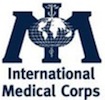
|
|
LUNCHEON ADDRESS: Behind the Scenes of Global Disaster Relief
|
|
Opening Remarks:
Dr. John Duke Anthony
Founding President & CEO, National Council on U.S.-Arab Relations
Keynote Speaker:
Ms. Nancy A. Aossey
President & CEO
International Medical Corps
Go behind the scenes of disaster relief in global hot spots with Nancy Aossey, International Medical Corps President & CEO. Ms. Aossey will provide a first-hand look at the dangers humanitarian workers face in delivering assistance and training on the frontlines of war, natural disaster and disease. A preeminent global first responder, International Medical Corps has responded to nearly every major crisis of the last 30 years, including the Philippines typhoon, the Haiti earthquake, Indian Ocean tsunami, genocide in Rwanda, the Syria crisis and conflicts in Darfur, Afghanistan and the Balkans, Ebola in West Africa, and other hard-hit places around the world. International Medical Corps and its partners provide health care services and training that build healthier communities. It is an investment that benefits us all because it prepares local residents to be their own best First Responders should disaster or disease strike, helping communities along the path from relief to self-reliance.
|
|
|
1:50 pm – 2:00 pm
|
Session Break
|
|
2:00 pm - 3:00 pm
Track #1
Room: Lincoln Hall, Second Floor

|
Governments, NGO'S & Private Sector Innovations/Collaborations to Address Human Resources Shortages
INTERNATIONAL MEDICAL CORPS
|
Rebecca Milner,
Vice President,
Institutional Advancement,
International Medical Corps
|
Dr. Pranav Shetty,
Global Emergency Health Coordinator,
International Medical Corps
|
Mr. Frank Clary,
Senior Manager,
Corporate Social Responsibility,
Agility,
Kuwait
|
Dr. Michael J. Bzdak,
Director,
Corporate Contributions,
Johnson & Johnson
|
Dr. Sameera M. Al Tuwaijri,
Health, Nutrition & Population,
Global Practice,
The World Bank Group
|
|
In a 2013 report, The World Health Organization estimates that there will be a worldwide shortage of 12.9 million healthcare workers by 2035, and that "the current rate of training new health professionals is falling well below current and projected demand.” In response, the WHO has called on the international community to "rethink and improve how we teach, train, deploy and pay health workers so their impact can widen." With the ability to leverage resources and expertise across sectors, public-private partnerships can play a significant role in building capacity of health care systems and deploying a better-trained and more robust workforce. Using case studies of successful public-private partnerships, this discussion will explore how governments, the private sector and civil society can continue to innovate and collaborate to build health care capacity and support the development of a global health workforce.
|
|
|
2:00 pm - 3:00 pm
Track #2
Room: Main Lounge, First Floor

|
Contagious Health: How Large-Scale Behavior Change Can Save Lives In the Middle East
MICROCLINIC
|
Dr. Daniel Zoughbie,
(Moderator),
CEO & Chairman,
Microclinic International
|
Dr. Abdulrahman M. El-Sayed,
Associate Director of Arnhold Institute,
Associate Professor of Population Health Science and Policy,
Ichan School of Medicine, Mt. Sinai
|
Dr. Eric Feigl-Ding,
Research Scientist,
Harvard School of Public Health
|
Dr. Andrea B. Feigl,
President,
Harvard Club of Austria;
Founding Member,
Young Professional's
Chronic Diseases Network
|
Ms. Jamila Headley,
Managing Director,
Health Global Access Project
|
Dr. Omar el Farouk Boukhris,
Director,
Qatar National Research Fund
|
|
NCDs like type-2 diabetes, obesity, and CVD are sweeping through the Middle East, adding enormous strain on political, social, and economic order. Because non communicable diseases are more and more prevalent in developing countries, they double the burden of infective diseases. By 2020, it is predicted that these diseases will be causing seven out of every 10 deaths in developing countries. If the present trend is maintained, the health systems in low-and middle-income countries will be unable to support the burden of disease. Yet, prominent causes for heart disease, diabetes, cancer and pulmonary diseases can be prevented by modifying behavioral actions and relearning healthy habits that deal seriously with mitigating risk factors like smoking, alcohol, physical inactivity and western diet. This panel will discuss some simple yet effective strategies that can be adopted to produce enormous financial and humanitarian improvements in the region.
|
|
|
3:00 pm – 3:10 pm
|
Session Break
|
|
3:10 pm - 4:10 pm
Track #1
Room: Lincoln Hall, Second Floor

|
Spinal Cord Injury and Exoskeletons: Personal, Professional, and Business Perspectives
U.S. DEPARTMENT OF VETERAN AFFAIRS
|
Dr. William A. Bauman,
(Moderator)
Director,
National Center of Excellence
For the Medical Consequences of
Spinal Cord Injury,
U.S. Department of Veterans Affairs
|
Dr. Ann M. Spungen,
Associate Director,
National Center of Excellence
For the Medical Consequences of
Spinal Cord Injury,
U.S. Department of Veterans Affairs
|
Mr. Robert Woo,
Architect,
Project Manager and LEED Accredited Professional,
Adamson Associate Architects
|
Mr. Pierre Asselin,
Health Science Specialist,
National Center of Excellence
For the Medical Consequences of
Spinal Cord Injury,
U.S. Department of Veterans Affairs
|
Mr. Larry Jasinski,
CEO,
Rewalk
|
|
More severe forms of spinal cord injury (SCI) result in the inability to stand and walk causing severe inactivity. The combination of paralysis and the loss of activity have devastating consequences on the physical, medical and emotional health of individuals with SCI. State of the art knowledge about the medical consequences of SCI will be discussed by two expert medical researchers in the field of SCI medicine. Additionally, an individual’s perspective on being paralyzed will be shared. The medical professionals and the personal experience discussions will include a description of the mobility limitations with loss of independence and social integration, the adverse body composition changes, difficulty with bowel and bladder function, pain, spasticity, and sleep disorders. Additional medical issues to be discussed by the medical professionals will include metabolic and endocrine disorders, respiratory system dysfunction and the disorders of the autonomic or "silent” nervous system. Interventions to prevent or mitigate these secondary medical consequences from SCI will be presented, with a focus on an exoskeletal-assisted walking program. The person with paralysis will share his experience with using a powered exoskeleton and demonstrate how the device is used. The discussion will include a description of the period of training needed to attain proficient walking in the exoskeleton, the degree of neurological deficit of SCI to which these devices are best suited for individuals to master the skills, the reported medical benefits of exoskeletal-assisted walking from a controlled hospital setting, and the psychological benefits provided by standing and walking in these devices. Additional expertise regarding the status of these devices in the USA and Europe and their availability in the Middle East will be provided by the CEO of a leading company in the field of powered exoskeletons. In summary, the panel discussion will provide insight into the mobility and medical problems faced by a person with SCI, identify a few of the innovative approaches to surmount the neurologic and health disorders of paralysis, and discuss the anticipated benefits of applying these innovative approaches to improve the longevity and quality of life of individuals with SCI.
|
|
|
4:10 pm – 4:20 pm
|
Session Break
|
|
4:20 pm - 5:20 pm
Track #1
Room: Lincoln Hall, Second Floor


|
The Rise and Cost of Untreated Mental Health Issues in the Arab Region
MASSACHUSETTS GENERAL HOSPITAL & TEACHERS COLLEGE, COLUMBIA UNIVERSITY
|
Dr. John B. Herman,
(Moderator),
Associate Chief of the Department of Psychiatry,
Trustees Chair for Medical Psychiatry,
Massachusetts General Hospital
|
|
Dr. David C. Henderson,
Director of Global Psychiatry,
Massachusetts General Hospital,
Associate Professor of Psychiatry,
Harvard Medical School
|
Ms. Dalal and Ms. Alaa Alhomaizi,
Co-Founders,
Standing for Psychological Education and Awareness in Kuwait,
(SPEAK)
|
Dr. Helen Verdeli,
Associate Professor of Clinical Psychology,
Teachers College,
Columbia University
|
Dr. Hesham Hamoda,
Assistant Professor,
Harvard Medical School;
Child & Adolescent Psychiatrist,
Boston Children's Hospital
|
|
Statistics indicate that the frequency of most mental disorders does not vary much from country to country around the world. Schizophrenia, for instance, affects 1% of the population worldwide. Anxiety and depression are much more common and affect at least 10% of the population. So there is no reason to believe that Arab countries are any different. In fact, the few statistics coming out of certain Arab countries (e.g. Lebanon and Egypt) confirm this fact. The issue in the Arab world is more to do with stigma and culture. Little attention is given to teaching interviewing skills or changing attitudes toward mental illness. Rarely is there any prolonged study given to the natural course of the illness and the effects of treatment by following the same patients over time, thereby limiting the amount of time spent dealing with their mental issues. Further compounding the problem is the lack of clinical research and/or supervision. For these reasons, there is an increased need for accessible, feasible, and culturally appropriate mental health interventions and programs that utilize local idioms of distress. Key techniques for fostering long-term change include raising public awareness, fostering acceptance, and destigmatizing the field of mental health in the region. The experts on this panel will be discussing the rise and cost of untreated mental health issues in the Arab region with an emphasis on solution-oriented strategies.
|
|
|
4:20 pm - 5:20 pm
Track #2
Room: Main Lounge, First Floor

|
Telemedicine: The Future of Accessible Healthcare
DUKE CANCER INSTITUTE
|
Dr. Gabi Hanna,
(Moderator),
Associate Director,
Duke Cancer Institute;
President,
Chairman of North Carolina Society of Physician Entrepreneurs
|
Dr. Richard E. Kouri,
Professor and Executive Director,
BioSciences Management Program,
North Carolina State University
|
Dr. Diab M. Almhana,
Director,
Telepsychology &
Telesociology,
American Remote Health
|
Dr. Annas Khan,
Harvard Disaster Medical Fellow,
Harvard Medical School
|
Mr. Nasser Hassan,
President,
Foundation for Commercialization Innovation;
President,
Regsource Consulting
|
|
Telemedicine is revolutionizing healthcare on many levels including clinical applications, medical education and helping to provide equity of access to medical care. There are numerous advantages to using telemedicine, and these include reducing waiting times for specialist clinics; providing services in the community of the patients; and, reducing expensive medical transport for patients and staff. The benefits of videoconferencing solutions have been especially beneficial in three distinct areas of the healthcare industry: patient consultation, administration, and medical education. That said, telemedicine is a rapidly developing area of clinical medicine, where medical information is transferred through live, interactive media such as videoconferencing, for the purpose of consulting and sometimes for remote medical procedures or examinations. It works by providing the link between the patient and the doctor, despite the distance between them. The access to medical knowledge can reduce the waiting time of a patient, and therefore their treatment time. Equity of access to healthcare services is considered a human right in most of the Western world, but providing healthcare services, specialist medical treatment or a consultation with a nurse or doctor in every city is a growing problem for public healthcare systems. Using telemedicine applications will enable organizations to deliver basic services speedily and on a regular basis where locally or internationally. More importantly, for remote areas, telemedicine is becoming a lifeline for the community; not only does it serve to provide timely medical advice without long travel, but it is also keeping the community together, removing the need to migrate from remote to populated metropolitan areas when a citizen encounters ill health. This session will discuss how telemedicine can change the global healthcare market, the habit of patients, and its effects on quality care; and, how remote healthcare will improve the collaboration and care between participating universities and hospitals in the US and Middle East.
|
|
|
5:20 pm – 5:30 pm
|
Session Break
|
|
5:30 pm – 5:40 pm
Room: Lincoln Hall, Second Floor

|
Closing Plenary: Steps to Creating Change: How to Move Forward Both Short Term and Future
ICAHN SCHOOL OF MEDICINE AT MOUNT SINAI
|
Dr. Arthur A. Klein,
President,
Mount Sinai Health Network;
Executive Vice President,
Mount Sinai Hospital;
Executive Vice President,
Icahn School of Medicine
|
|
Since the early 20th century, there has been a focus on hospitals as the locus of health care delivery. While good secondary and tertiary care facilities are critical components of a strong health system, in the twentieth century we are faced with healthcare needs that are best treated outside of the hospital setting. This requires the development of new models of care delivery based on extending the reach of the clinic into the communities where patients live.
|
|
|
5:45 pm - 7:00 pm
Room: Main Lounge, First Floor
Music by:
Robert May, Pianist
|
|
Cocktail & Networking Reception
|
Welcoming Remarks:
Dr. Scott J.N. McNabb,
Research Professor, Emory University,
Rollins School of Public Health
|
|



